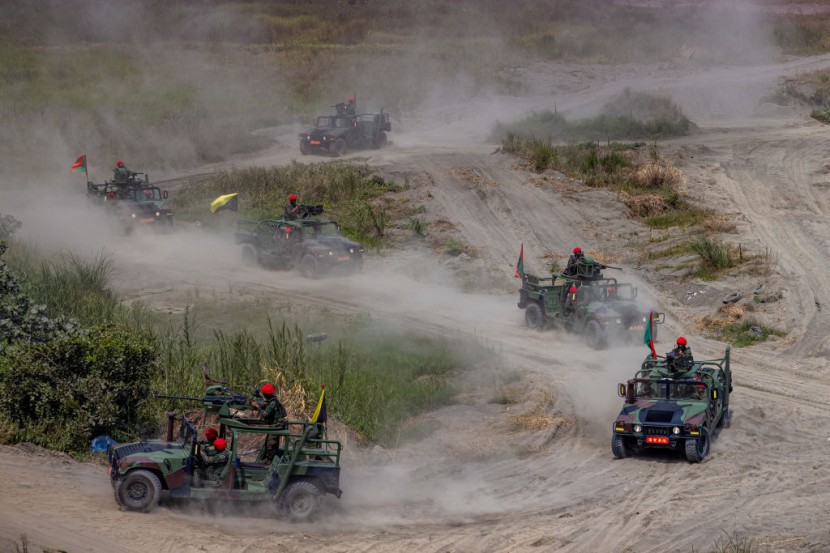
Taiwan holds its most extensive annual live-fire drills to boost its military capacity as China increases its military threat on the independent island with a population of 24 million.
Known as the Han Kuang exercises, the drills showcase "the ability and determination of our military in defending our country," according to Taiwanese President Tsai Ing-wen.
Tuesday, President Tsai witnessed Taiwanese military soldiers acting as both the attacker and the defender in a simulated strike on the Su'ao Naval Base, a significant military facility in northern Taiwan, per CNN.
A hostile adversary attempts to take control of a vital canal close to the Taiwanese capital in simulated scenes. Attacking from the sea and the air, the invading forces aim for the important estuary at the mouth of the Tamsui River on the island's northern coast, which offers easy access to Taipei.
Taiwan's military deploys Indigenous Defense Fighter (IDF) jets, tanks, and ground forces to stop the advance in retaliation.
For two hours, guided-missile destroyers fired cannons, missiles, and torpedoes at an imagined armada coming down on the shore while Mirage 2000 and F-16 pilots scrambled to intercept warplanes invading from the east.
The weeklong Han Kuang exercises continue until Friday throughout Taiwan and its neighboring islands. Taiwanese military participates in the yearly event, which has been going on since 1984, to improve military capabilities.
US Prepares To Protect House Speaker Pelosi If She Pushes Taiwan Visit
The Han Kuang exercises this year have assumed greater significance due to increased fears over China's intentions towards Taiwan, a sovereign island that Beijing's ruling Communist Party claims as its own.
The Russian invasion of Ukraine has heightened the Taiwan-China conflict. Beijing has not ruled out using military force to annex Taiwan, and it has been sending warplanes into what it calls an "air defense identification zone," which intensifies military pressure on Taipei.
Nancy Pelosi, the speaker of the US House, is reportedly considering visiting Taipei. Beijing has responded angrily to these allegations, saying that if it encounters "external forces" that support Taiwanese independence, it will "resolutely defend national sovereignty."
When questioned about potential military protection for Pelosi in case of a visit to Taiwan, a Democrat from California, Joint Chiefs of Staff chairman, Gen. Mark Milley, warned on Wednesday that discussing any specific travel is premature, as reported by AP News. However, he continued, if there is a confirmation that Speaker Pelosi or anyone else would travel and there's a request for military support, they "will do what is necessary to ensure a safe conduct of their visit."
Joe Biden-Xi Jinping Phone Call May Take Place This Week
As worries grow over a potential visit of U.S. Speaker of the House Nancy Pelosi to Taiwan, U.S. President Joe Biden and Chinese President Xi Jinping may conduct their fifth phone conversation as leaders as soon as Thursday, according to Reuters.
According to Biden administration officials, the long-planned call would cover a wide range of topics, including the Russian invasion of Ukraine, which China has not yet denounced.
White House national security spokesman John Kirby, the measure is to keep "the lines of communication open with the president of China," which the US recognizes as among "the most consequential bilateral relationships that we have, not just in that region, but around the world, because it touches so much."
Washington recognizes a "one-China" policy, which excludes Taipei from diplomatic recognition. However, it is required by American law to give the island the necessary resources to defend itself, and there has been growing demand in Congress for greater outright assistance.
Related Article: Taiwan Conducts Military Exercises Participated by Residents as China Becomes More Aggressive








